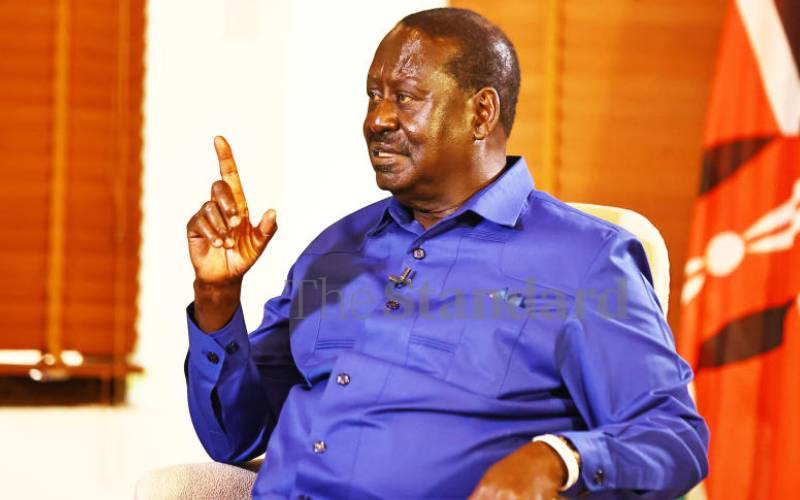
On a day that marked the fifth anniversary of the handshake between former President Uhuru Kenyatta and ODM leader Raila Odinga, the latter launched his calls for mass action against President William Ruto's regime.
Shortly after a joint address by the Azimio la Umoja - One Kenya Coalition party in Nairobi, President Ruto's administration found itself staring at the barrel of the Opposition's gun owing to the decision not to heed a 14-day ultimatum by Raila to open the IEBC servers for scrutiny and implement policies to, among others, lower the cost of living.